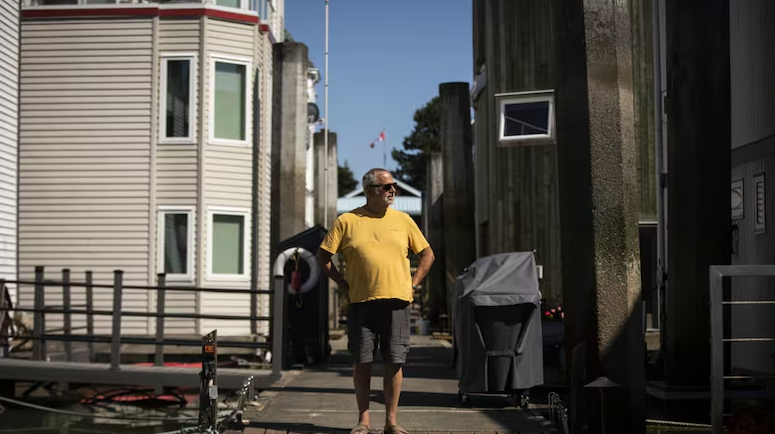Delta Floating Home Residents Sound Alarm Over Fraser River Silt Buildup
Liam O'Connell
7/29/20252 min read


Residents of a floating home community on B.C.’s South Coast are growing increasingly concerned about thickening silt in the Fraser River that’s causing their homes to list dangerously during low tide — with no clear authority stepping up to resolve the problem.
At Canoe Pass Village in Delta, B.C., homes are tilting when tides recede, leaving structures grounded in mud. Longtime resident Ted Dufresne fears the safety risk is escalating.
“We have a lot of seniors in this community,” he said. “If someone were to fall or have a medical emergency in the night, ambulances may not be able to reach them. Some houses might not even be accessible.”
Paul Scott, who handles maintenance for the village, says the situation has deteriorated steadily over his five years on the job. “It’s getting worse,” he said, describing how silt buildup is damaging docks and leaving infrastructure vulnerable. “It shouldn’t be this way.”
The effects aren’t limited to homeowners. The Tsawwassen First Nation says the growing silt is endangering both the health of the river and its members’ ability to access fishing sites.
“This is not just about infrastructure,” the Nation said in a statement. “It’s about our way of life. Without action, the buildup threatens our guaranteed right to fish under our Final Agreement.”
Both the Tsawwassen First Nation and Canoe Pass Village are calling for dredging of the river’s secondary channel, but confusion over jurisdiction is delaying action. While the Vancouver Fraser Port Authority handles dredging of the main channel, it says no single entity is responsible for the secondary channel, where the village is located.
Delta Mayor George Harvie confirmed the secondary channel was once maintained by the port authority but has since been neglected. “No one has taken responsibility since,” he said.
Dufresne, who’s lived in Canoe Pass Village for 12 years, says the channel has never been dredged in his time there. Harvie added that emergency dredging is being sought, but the community is still awaiting a permit. Proceeding without one could result in steep penalties.
According to Harvie, annual maintenance dredging would cost about $3 million. He, along with Richmond’s mayor and local First Nations, sent a letter to the federal government urging action — but have yet to receive a response.
“It affects public safety. It affects people’s jobs. I don’t understand why they won’t act,” Harvie said.
The Ministry of Water, Land and Resource Stewardship confirmed that discussions between various government levels and organizations are ongoing, but no resolution has been reached. Transport Canada did not respond to CBC News before publication.
News
Stay updated with the latest BC news stories, subscribe to our newsletter today.
SUBSCRIBE
© 2025 Innovatory Labs Inc.. All rights reserved.
LINKS
